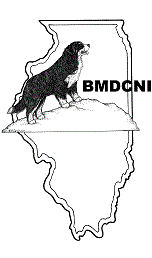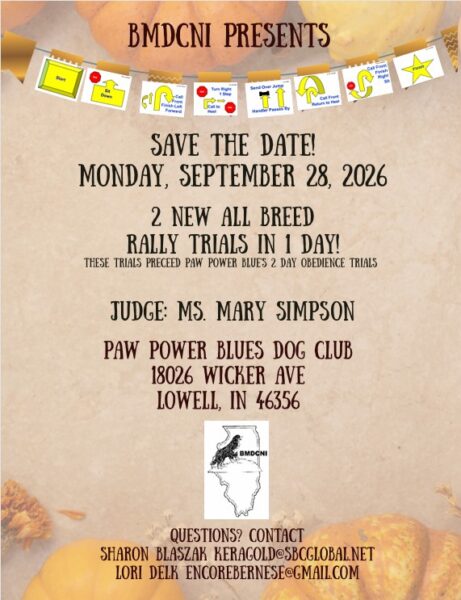Health Tests & Screening Available
- AKC DNA PROFILE
The AKC DNA test is used to verify parentage of AKC dogs for genetic identity purposes which assures validity of the AKC Stud Book. AKC’s parentage testing technology involves use of a cheek swab brush to collect cells from the inside of the dog’s mouth/cheek. Once a cell sample has been collected by the dog’s owner or veterinarian using an AKC DNA kit, the sample is mailed to the AKC. The sample is processed by AKC’s DNA service provider, MI Genomics. The resulting genotype is entered into the AKC Database. AKC DNA testing can be done at any age. Puppies must have permanent ID in order for the dog’s DNA # to be associated with the AKC registration.
- HIP DYSPLASIA
PENNHIP: Screening measures joint laxity with the Distraction Index (DI). From the PennHIP website: “it is recommended that breeders choose breeding stock from the tightest 40% of the breed (meaning the 60th percentile or better), thereby maintaining an acceptable level of genetic diversity while still applying meaningful selection pressure. By breeding only dogs with hips above the breed average (60th percentile or better) the overall breed average will move toward better (tighter) hips from one generation to the next.” Permanent identification, such as a microchip or tattoo is recommended prior to screening. PennHip screening can be done as early as 4 months but the recommended age is after 12 months for optimal results.
OFA: Radiographic screening for HD should be done by a veterinarian experienced with positioning requirements for the procedure. Dogs can be radiographed under anesthesia or not. Consult the attending veterinarian for further information. Preliminary screening can be done at 6 months to 24 months, but the recommended age for optimal results is 24 months or older.
- ELBOW DYSPLASIA
OFA: Radiographic screening for ED should be done by a veterinarian experienced with positioning requirements for the procedure. Dogs can be radiographed under anesthesia or not. Consult the attending veterinarian for further information. Preliminary screening can be done at 6 months to 24 months, but the recommended age for optimal results is 24 months or older.
- EYE EXAM BY BOARD CERTIFIED VETERINARY OPHTHALMOLOGIST
Canine Eye Registry Foundation, CERF and Orthopedic Foundation of America, OFA : Eye exam clinics can often be found at AKC shows and regional club health clinics, and CERF / OFA eye exam clinics. The first eye exam should be done by 12 months, with a recommended annual retesting; at a minimum, every two years is advised.
- VON WILLEBRANDS (vWD) DISEASE TYPE I DNA TEST
Vetgen: Von Willebrands Disease (vWD) Type I DNA test is very different from the old protein-based factor assay. VetGen’s vonWillebrands Type I DNA test is definitive and final, as it provides a lifelong, permanent determination of the vWD status of each dog tested as contrasted to the factor assay, in which the levels could change over time. Testing is done by a cheek swab. Test results will come back as “Clear,” “Carrier,” or “Affected.” Clear means both of the vWD gene pair are normal. Carrier means one gene is normal and one is defective. Affected means both genes are defective. A dog may be certified as ‘clear by parentage’ if both parents are normal, and parents and the puppy all have AKC DNA numbers. ‘Clear by parentage’ status applies to the 1st generation only, i.e., it would not be valid for a dog with only grandparents tested as clear, and not the parents. Dogs can be tested at any age.
- HEART EXAM BY A BOARD CERTIFIED VETERINARY CARDIOLOGIST
OFA: Heart exam clinics can often be found at AKC shows, regional club health clinics, or referred by a Veterinarian. Have your dog tested, and then submit the appropriate Congenital Cardiac form signed by the cardiologist to OFA. Recently, OFA has stated this cardiac test may not be reliable for diagnosing subaortic stenosis or cardiomyopathy. If you suspect there are dogs in your pedigree with these issues, consider a trip to the cardiologist for additional testing, i.e., echocardiography with Doppler. The first exam should be done by 12 months and recommended reexamination every 2 years.
- AUTOIMMUNE THYROIDITIS BLOOD TEST
OFA: Autoimmune thyroiditis is the primary cause of hypothyroidism. Free T4, Canine Thyroid Stimulating Hormone (cTSH), and Thyroglobulin Autoantibodies (TgAA) have to be measured. The first test should be done by two years old.
- HYPOTHYROIDISM, OR A MEASURE OF THYROID FUNCTION BLOOD TEST
OFA: Thyroid function can affect fertility, activity level, weight, activity level, can cause aggression or lethargy. Thyroid function can deteriorate with age. The first test should be done by two years old.
- SHOULDER OSTEOCHONDROSIS (OCD) RADIOGRAPH
OFA: OCD is a disease of the cartilage, which can cause the cartilage to break away from the bone and cause lameness. It can occur in any joint. The first radiograph should be taken 12 months or older.
- PATELLAR LUXATION RADIOGRAPH
OFA: Patellar luxation occurs when the kneecap pops out of position. The first radiograph should be taken 12 months or older.
- DEGENERATIVE MYELOPATHY (DM) DNA TEST
Two genetic mutations, SOD1A and SOD1B, have been identified for Bernese Mountain Dogs. SOD1A is more common and SOD1B has only been found in Berners. There is currently a genetic test for each mutation. Testing is done by a cheek swab and can be done at any age. Results for each test will come back as “Normal/Clear”, “Carrier”, or “At-Risk”. “Normal/Clear” means both of the gene pair are normal. “Carrier” means one gene is normal and one is mutated. “At-Risk” means both genes are mutated. Dogs that test “At-Risk” for SOD1A -or- SOD1B OR “Carrier” for SOD1A -and- “Carrier” for SOD1B are considered “At-Risk” and are more likely, but not guaranteed, to get DM. It is recommended that you test for both mutations.
TEST PROVIDERS: University of Missouri in collaboration with OFA, VetGen, DDC and others test for SOD1A only. GenSol has tests for both SOD1A and SOD1B.
- CHIC (CANINE HEALTH INFORMATION CENTER)
CHIC was developed by joint cooperation between the AKC/CHF and OFA. A CHIC # DOES NOT INDICATE THAT THE DOG HAS ‘CLEAR’ HEALTH TEST RESULTS. The purpose for CHIC was to research and maintain information on the health issues prevalent in specific breeds. Like Berner-Garde, the basis for participation is an open sharing of health information. The BMDCA joined the CHIC program in 2007. Currently, the BMDCA Board has established the following requirements for a CHIC certificate:
• AKC DNA identification
• Hip evaluation by OFA, OVC or PennHIP
• Elbow evaluation by OFA or OVC
• Eye exam by Ophthalmologist – registered with CERF or OFA
• VetGen vWD gene test – registered with OFA
• Heart examination done by a Cardiologist – registered with OFA
As long as all of the results of the above tests are shared openly through OFA, the CHIC certificate is automatically generated by OFA.

